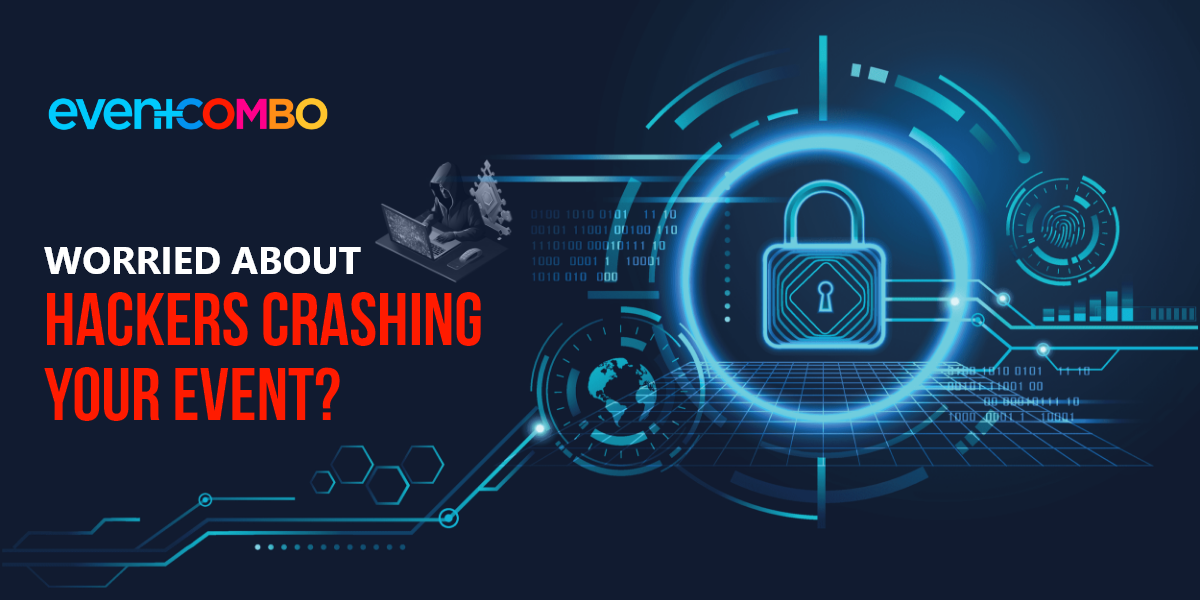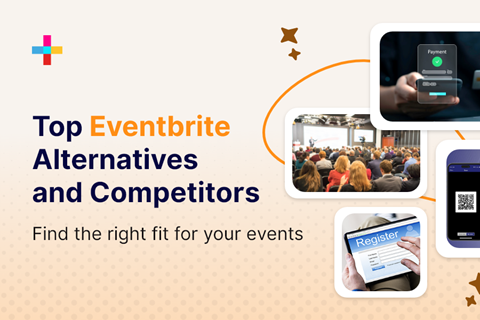

Events, whether in-person, virtual, or hybrid, handle highly sensitive attendee information. Corporate event planners require names, emails, contact numbers, employment data, disability information, and other confidential details for effective planning. However, such attendee and delegate data are valuable targets for hackers.
With the proliferation of event technology platforms, the need to keep attendee data private and safe has increased significantly. Tools for registration, marketing, check-in, and similar functions capture a substantial amount of sensitive data. Therefore, failing to remain vigilant about your event tech tool’s security can have serious consequences.
Data Security Hazards Associated with Event Tech
Event technology, such as event management software, stores and manages extensive attendee data. Tools like registration platforms, mobile event apps, and conference management systems significantly reduce the workload for event planners. However, these tools are also vulnerable to cyberattacks and data breaches if they don't comply with event tech security standards. Here are some common data security risks to be aware of:
Most Important Event Tech Security Standards and Certifications
To minimize the risks of reputational damage, operational disruption, and legal issues, it’s important to invest in technology that adheres to the following event security and compliance protocols.
1. Soc 2 Type I and Soc 2 Type II Certifications
The SOC standard is a set of criteria that measures how effectively a service or organization regulates its data. If a company has SOC certification, it means that it has implemented adequate policies to safeguard client data. SOC 2, or Service Organization Control Type 2, ensures that your event technology platform securely stores and processes attendee data.
The Type 1 standard provides evidence of an organization’s use of compliant systems at a specific point in time. It demonstrates the controls employed by the company and confirms that they are properly designed and enforced.
2. PCI DSS Compliance
PCI DSS requirements aim to identify and prevent fraud and the consequent financial loss. PCI compliance in your event tech solution means it adheres to Payment Card Industry Data Security Standards. This is particularly crucial if you use a registration platform that processes online payments. This certification is essential for secure payment processing for events, ensuring that your event registration platforms are safe.
3. CCPA Compliance
CCPA, or the California Consumer Privacy Act, applies to event technology solutions processing a significant amount of personal data for commercial purposes, including B2B data for individuals located in California. This certification is essential to demonstrate your commitment to user privacy for California residents. Under CCPA, consumers can opt out of data processing at any time and are provided with information about who collects or sells their data.
4. GDPR Compliance
GDPR, or the European Union’s General Data Protection Regulation, is the highest benchmark for protecting attendee privacy. The primary aim of GDPR is to give users greater control over their personal data. GDPR compliance for events ensures the security of your attendee data, confirming that individuals registering have consented to provide their personal data, whether through written forms, email, telephone, or online registration. Additionally, GDPR compliance ensures that attendees are informed about what personal data is stored and used, and they can withdraw their consent at any time.
5. PIPEDA Compliance
PIPEDA, or the Personal Information Protection and Electronic Documents Act, is Canada’s federal privacy law regulating the use of personal data for commercial activities. Event technology must comply with this act, allowing prospective attendees to understand the intent behind data collection, the types of data collected, and the safety of the gathered information. Furthermore, attendees can withdraw their consent for data collection at any time.
6. AES-256 Encryption
Encryption involves encoding data to make it unreadable to unauthorized individuals. AES-256 encryption is one of the most critical security certifications that event technology should have. It is the protocol used by the American government to store its nuclear codes. AES-256 is a virtually unbreakable symmetric encryption algorithm that uses a 256-bit key to transform plain text or data into a cipher. This industry-standard protocol ensures that attendee data is fully protected from hackers. Even if someone gains access to the critical event data on your platform, they will be unable to understand it, rendering it practically useless to cybercriminals.
Conclusion
Data breaches are becoming increasingly common as the world embraces digitalization. However, you can navigate these challenges by partnering with event technology providers whose solutions adhere to the security and compliance protocols mentioned above. Investing in software and solutions that resist data theft, breaches, phishing, and other sophisticated attacks is key to building attendee trust. Compliance with national and international data protection regulations demonstrates your commitment to ensuring your attendees’ safety.
At Eventcombo, we offer a suite of event management tools with robust data security and privacy measures. All our solutions comply with data protection regulations and use industry-standard encryption algorithms. Check them out. https://bit.ly/3R9bkuP

Every event organizer knows the sinking feeling of watching a well-planned budget unravel. That initial estimate of $400,000 suddenly balloons to $540,000 due to unexpected fees and overlooked expenses.

Eventbrite is a common name in the event management space, but if you’re here, chances are it isn’t checking all your boxes. Like many professionals, you may be looking for Eventbrite alternatives or exploring...

Networking events remain the backbone of professional growth, whether you're building a business, recruiting talent, generating leads, or seeking strategic partnerships.